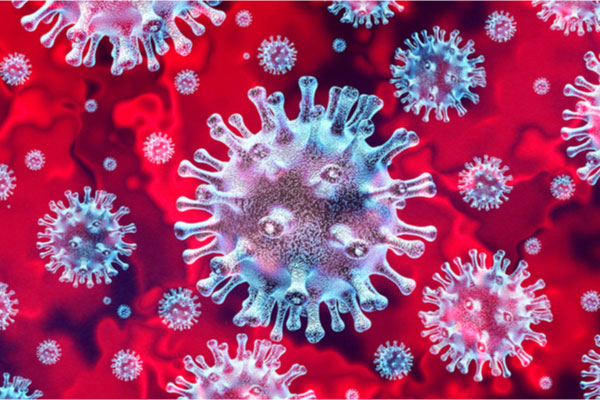What started as a report from Wuhan, China on Dec. 31, 2019, about a group of pneumonia cases turned out to be more. Just seven days later, the case was confirmed to be related to a novel coronavirus: known now as COVID-19. By the end of January, the World Health Organization (WHO) declared the coronavirus a global health emergency. Then, on Wednesday, the organization moved the status of the virus to a pandemic.
Since the first reported cases of the disease in Wuhan, there are now a total of 127,863 confirmed cases (1,323 in the U.S.) and 4,718 deaths from the disease worldwide, according to John Hopkins University’s Center for Systems Science and Engineering.
What Is Coronavirus?
According to the WHO, coronavirus is a family of viruses that cause a variety of illnesses, from the common cold to SARS, Severe Acute Respiratory Syndrome. These viruses are zoonotic, meaning that they pass from animals to people. According to the Centers for Disease Control and Prevention, CDC, the official name of the coronavirus currently spreading is COVID-19.
Symptoms of COVID-19 can include:
- Mild to severe respiratory issues
- Fever
- Cough
- Shortness of breath
It is considered a novel virus, the word “novel” indicating that the virus is a previously undiscovered strain of coronavirus. It is a respiratory illness which spreads from person to person.
How Does It Spread?
COVID-19 appears to be highly transmittable. People can catch the virus from others who have the virus, even before the infected individual is showing symptoms. The disease can spread between people who are within six feet of each other, and through droplets created by an infected individual who coughs or sneezes. Although it is not the primary route, people can acquire the virus by touching an infected surface, followed by touching the mouth, nose, or eyes.
An aspect of COVID-19 that may make it an especially spreadable virus is how it can transmit between people before the infected individual even shows any symptoms. In some cases, the symptoms are mild, so the infected individual may spread the virus before realizing they are sick. The New England Journal of Medicine reported that COVID-19 is at peak infectiousness just as the individual begins to feel sick.
Who Is at Risk for Severe Illness From Infection?
Those over the age of 60 and people who have chronic conditions like diabetes, high blood pressure, heart disease, lung disease, and cancer are at a greater risk of developing severe symptoms from COVID-19. For those over the age of 80, the mortality rate stands at 15%, according to a WHO report that pooled over 72,314 cases in China. That said, it is difficult to accurately identify all of the factors that leave people susceptible to developing serious illness at this time.
There appears to be no evidence that children are more likely to catch the disease. Furthermore, the CDC reports that severe complications from COVID-19 in children are uncommon. However, disease spreading can happen quicker among children because of frequent exposure to germ-rich areas like schools. The CDC also recommends that parents teach their children to have good hygiene practices and keep them up to date on all vaccinations.
What COVID-19 is Like and When to See a Doctor
Researchers found that nearly 99% of individuals developed signs of COVID-19 within 14 days of initial infection. The severity of the symptoms depends partly on the person’s immune system and age; however, those infected may experience respiratory symptoms like coughing and shortness of breath. Additionally, the virus may induce a fever. Cases can present symptoms that range from mild to severe.
Health care professionals recommend that those who are sick with any illness like the cold or flu stay home. If a fever accompanies the symptoms progress and, they recommend you call your healthcare provider. If you have symptoms after recently traveling to an area infected with COVID-19, or have come in close contact with someone who has the virus, the CDC recommends you find help from a medical professional.
How to Prevent the Spread of Covid-19
To prevent the spread of COVID-19, the WHO recommends for you stay home if you are ill. It is critical to follow other guidelines like covering your mouth with the crease of your elbow when coughing and sneezing into disposable tissues.
Additionally, avoid touching the eyes, nose, or mouth, as the virus can enter the body this way. Unless you have COVID-19, or are caring for a person with a suspected COVID-19 infection, the WHO does not recommend wearing a facemask.
The WHO does recommend washing your hands frequently with an alcohol-based hand rub or with soap and water. People should also maintain social distancing, maintaining at least three feet of distance between yourself and other people.
Lastly, stay informed on the ongoing development of COVID-19 and contact your personal healthcare provider if you have any questions or concerns about how to protect yourself from COVID-19.
Doctor Genius, located at 2 S Pointe Dr #200, Lake Forest, CA 92630, provides a range of services for practice success. We seek to meet our clients’ needs by providing a variety of marketing, SEO, practice optimization tools, and coaching to transform the healthcare experience. Though we work to provide the most accurate information, the content found on this website is solely intended for entertainment purposes. Therefore, we cannot guarantee that the information provided is entirely correct. You may not use the information on this site to cure, prevent, or diagnose a perceived medical issue. If you have healthcare-related needs, please speak directly to a healthcare professional. Never self-perform medical treatments discussed on this website. All images displayed are also for entertainment purposes only, and personal experiences may differ. Please note that the business tactics mentioned on this site might not be applicable to your industry or practice.


